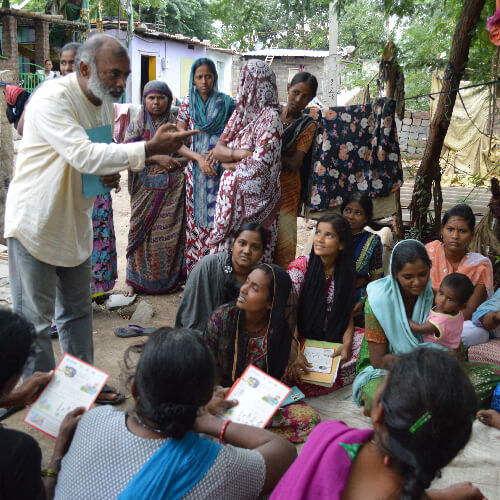2003
The Journey Begins
KHPT is founded by a dedicated group of social scientists, community health experts and public health specialists to manage the escalating HIV epidemic in Karnataka. Their belief in community engagement and ownership of health initiatives lays the foundation for KHPT’s values.
2006
Deep-Diving into Determinants
Our approach to HIV prevention integrates contextual factors that influence health-seeking and access to care, while actively engaging vulnerable communities to take ownership of health initiatives. The Corridors cross-border project works to increase access to health services for the large number of sex workers moving back and forth along a “corridor” from parts of rural northern Karnataka to Maharashtra. All leadership positions in project are taken up by the community from the very beginning.
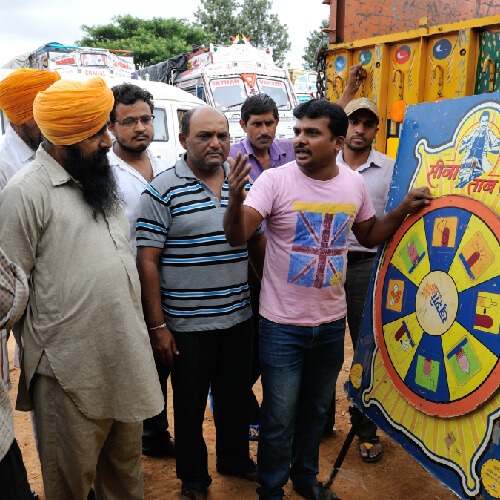
2009
From Prevention to Care
From HIV prevention, we expand to working with Persons Living with HIV (PLHIV) and Child Affected by HIV and AIDS. We build the capacity of healthcare institutions and facilities to provide high-quality HIV/AIDS care, support and treatment, and work on activating the network of community-based organizations with PLHIV as per the national guidelines to ensure they are federated at state level.
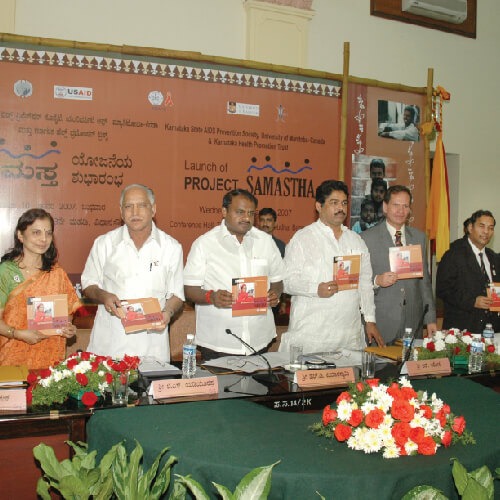
2010
Revitalizing Local Governance
KHPT activates 1300 VHSNCS in Bagalkot and Koppal districts through intensive capacity building. This further strengthens our belief in a decentralized approach to addressing health and development problems.
Engaging with Children affected by HIV and AIDS
Our work with Children affected by HIV and AIDS leads to the Government of Karnataka scaling up a single-window cash transfer across Karnataka to take care of their educational needs, medical testing and foster care or sponsorship.
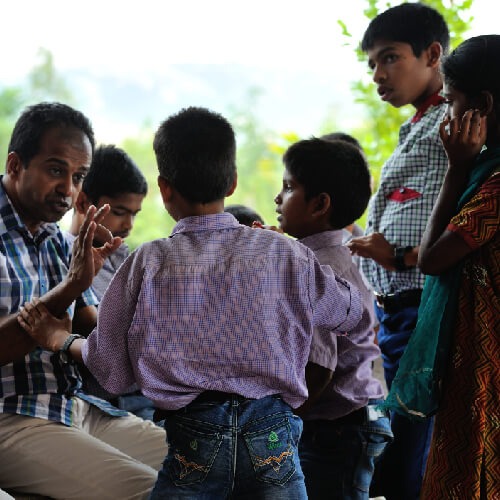
Shifting HIV trends through community engagement
Karnataka witnesses a shift in HIV trends and the prevalence of HIV begins to reduce, in part due to our extensive work among vulnerable communities. HIV infections reduce from 19.6% to 10.3% among female sex workers. ANC prevalence reduces from 1.5% to 0.5%.
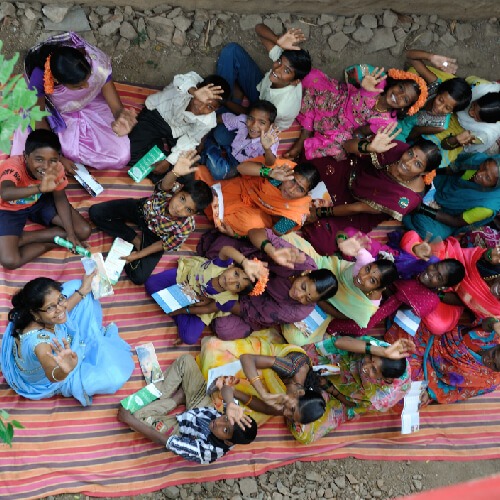
Expanding into Adolescent Health
Our work with devadasis pushes us to consider the issues of their daughters, who are vulnerable to dropping out of school and being trafficked for sex work. This sows the first seeds of our Role Model Girl approach for adolescents
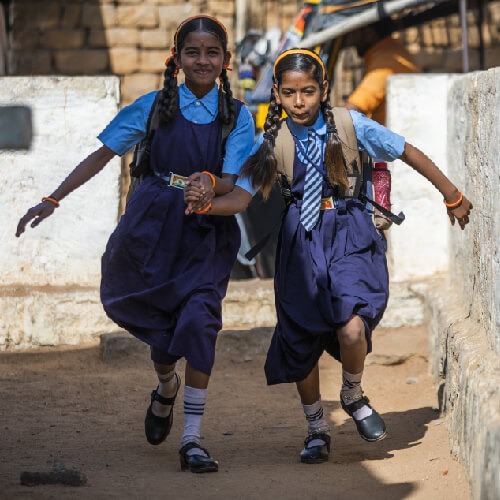
2011
Community Ownership
Karnataka becomes the only state in India to transition 70% of the government’s HIV Targeted Interventions to Community-based Organizations of Female Sex Workers supported and capacitated by KHPT.
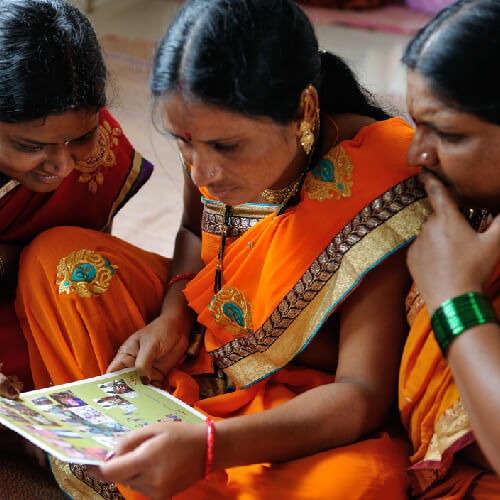
Moving into MNCH
MNCH becomes our new focus area after we observe that many adolescent girls get married and have children early, necessitating a life cycle approach to their health
The Sukshema project in eight North Karnataka districts (2011-2016) brings the neonatal mortality rate down from 40.8% to 30.4% and infant mortality rate down from 53.5% to 43.5%.
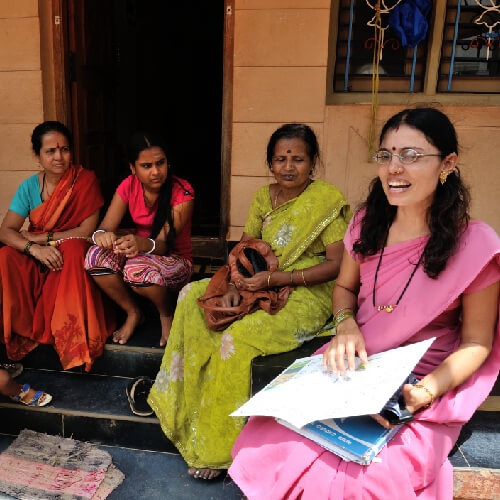
Grappling with Gender-based Violence
KHPT presents findings from our crisis intervention among female sex workers at the Vienna International AIDS Conference in 2010, leading to our first UN-funded project, Samvedana, which focuses on violence reduction among female sex workers.
A Medical Condition, A Community Approach
The need to work on TB, one of the most common and deadly co-morbidities of HIV, emerges from our HIV initiatives, and we begin to work with the private sector and on community-friendly innovations in line with the national TB programme.
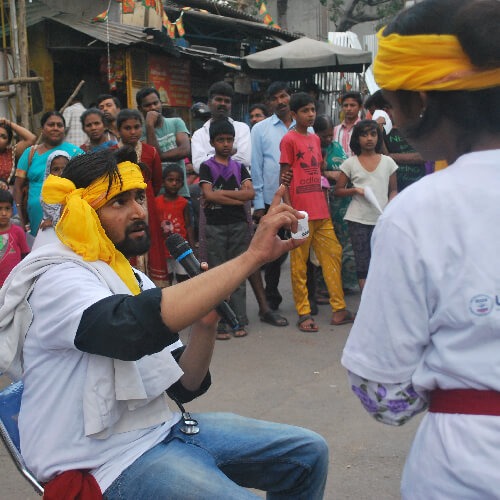
2013
Sowing the seeds for Sphoorthi, through Samata!
We embark on a journey to improve the quality of life of adolescent girls from marginalised communities in northern Karnataka by keeping girls in school, delaying marriage, and reducing entry into sex work. Samata becomes our first project focused on adolescent girls, a group that is rarely independently targeted for public health and social well-being interventions.
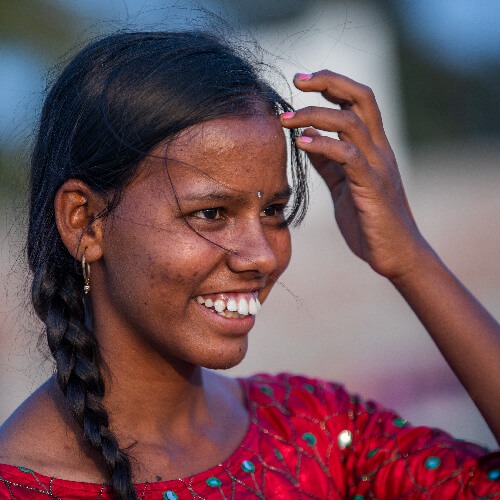
2014
Local Approaches with Global Potential
We share our learnings from HIV globally through the India Learning Network initiative, which enhance HIV programmes of several African, Caribbean and South East Asian countries through trainings, immersion visits and resources.
2015
Addressing Nutrition, Nurturing Ambition
The Karnataka Comprehensive Nutrition Mission brings KHPT on board to address malnutrition among children, adolescents and pregnant women in two of Karnataka’s most backward districts. We equip village women to run two fortified blended food factories for their own brand ‘Shakti Vita’, right from operations to distribution, including driving trucks!
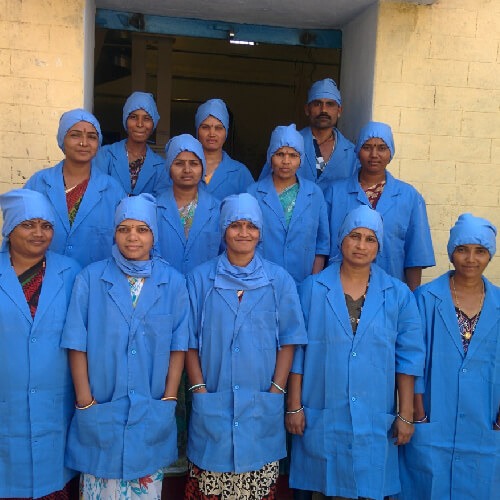
2016
Kangaroo Mother Care (KMC) leaps into Karnataka’s agenda
We demonstrate a model to improve the uptake of skin-to-skin contact and exclusive breastfeeding for low birth weight babies. The Government of Karnataka scales up our best practices of establishing KMC wards, mentoring facility staff and monitoring across to the state.
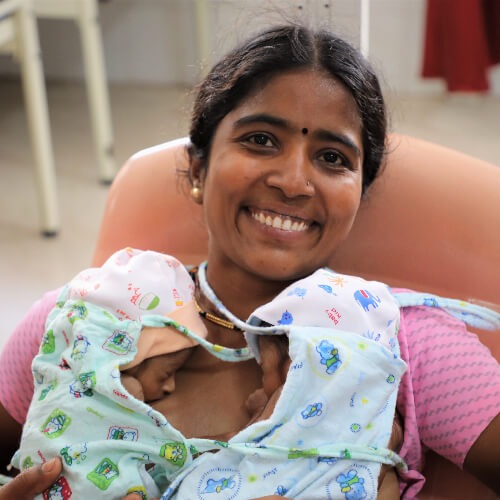
2017
Our Approach becomes comprehensive
As national priorities move beyond curative health to a more comprehensive approach, we begin to work on a pilot in Mysuru city to establish a health systems-based model to scale up Non-Communicable Disease programmes in urban areas.
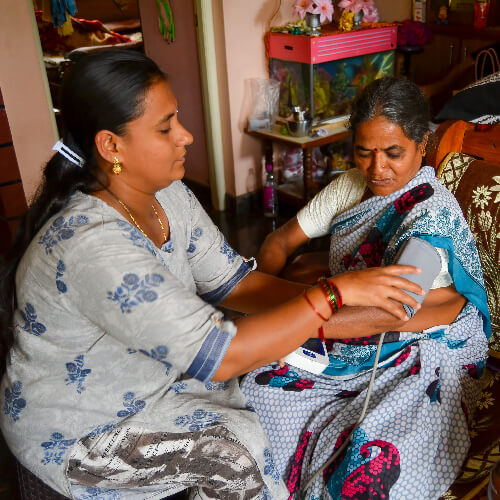
2019
Framing vulnerability for national interventions
Our adolescent initiatives gain the attention of the Ministry of Health and Family Welfare of the Government of India, which chooses us to develop a national vulnerability framework for adolescents.
2021
International acknowledgement of adolescence expertise
We are invited to review an international toolkit on adolescent health for the World Health Organization.
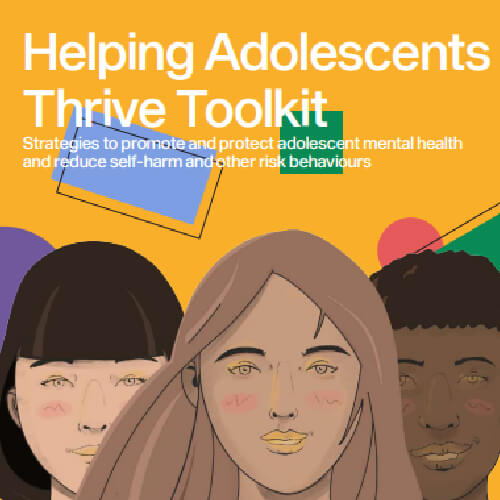
Cross-country dissemination of community TB approaches
Our community structure engagement and support group models are endorsed by the Central TB Division and disseminated to all the state representatives of the National Tuberculosis Elimination Programme
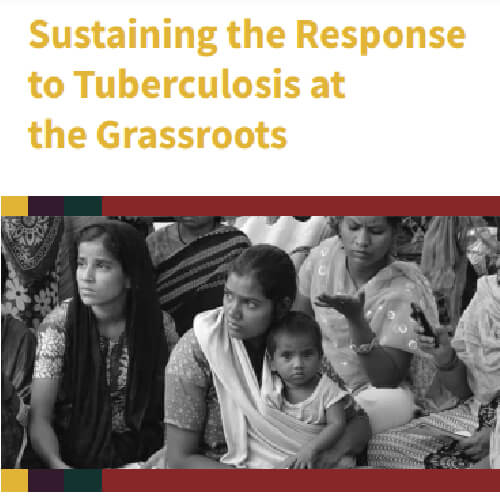
2022
Convergence and Decentralization
In the wake of the COVID-19 pandemic, we embark on the ambitious Graama Panchayath Arogya Amrutha Abhiyaana (GPAAA) with the Departments of Rural Development and Panchayat Raj and Health and Family Welfare, Government of Karnataka, to engage Gram Panchayats and their allied structures in the provision of healthcare services to last mile communities.
Just one year in, the Government of Karnataka expands this first-of-a-kind initiative to all 31 districts, covering 5956 Gram Panchayats and a population of 37.7 million people!
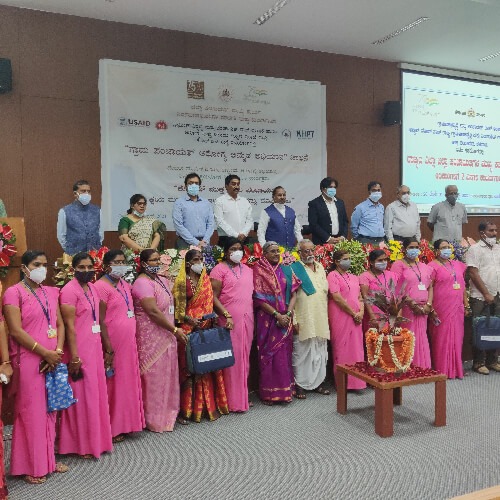
Sphoorthi becomes a state initiative!
Our Sphoorthi model for adolescent girls is recognized by the Government of Karnataka and its scale-up to five districts is announced across the state.
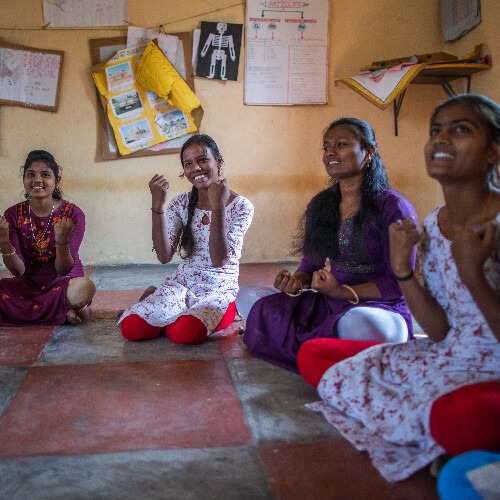
2023
Planning for Anaemia-Mukt Karnataka
Our best technical, research and programmatic minds work together with the Government of Karnataka to collaboratively create a strategy for an Anaemia Mukt Karnataka.
Codifying our Comprehensive Healthcare approaches
The National Health Systems Resource Centre collaborates with us on the development of modules for engaging Urban Local Bodies, Self-Help Groups and Panchayati Raj Institutions in the provision of healthcare.
